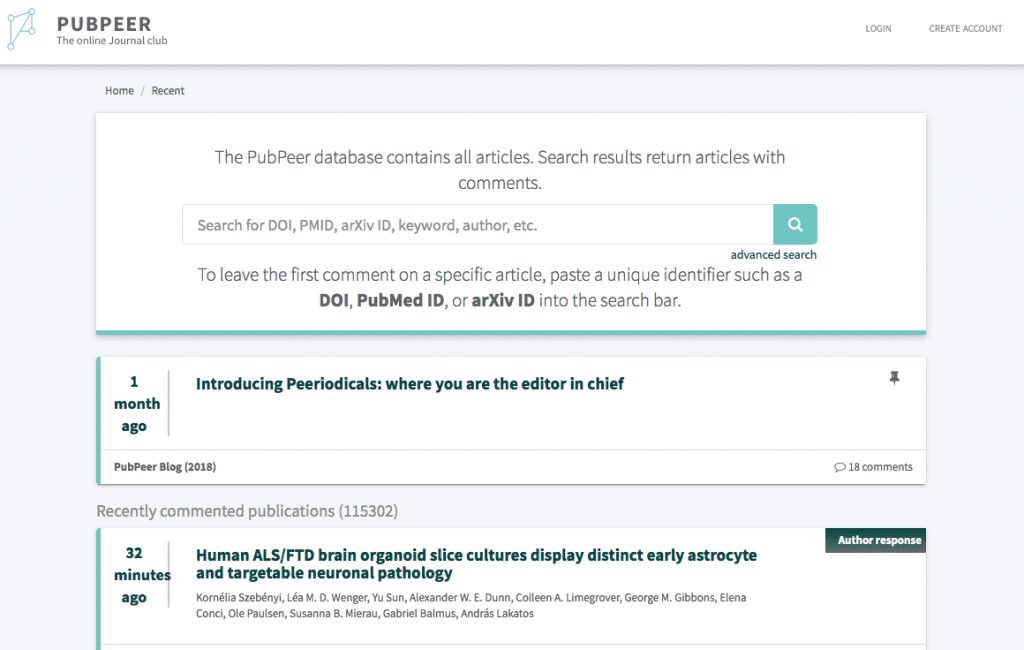- Profile
- Comments 0
- prev
- next
- Website
- Leave a comment
- Review policy
- prev
- next
In a nutshell
The process of reviewing published science is constantly occurring and is now commonly being called post-publication peer review. It occurs in many places including on blogs such as this one, review articles, at conferences around the world, and has even been encouraged on the websites of some journals. However, the process of recording and searching these comments is, unfortunately, inefficient and underused by the larger scientific community for several reasons: To successfully impact the publication process, this database of knowledge has to accomplish two important tasks. First it requires participation by a large part of a given scientific community so that it reflects an average impression instead of an outlier’s impression. Second, it requires that the collective knowledge is centralized and easy to search in order find out what the community collectively thinks about an individual paper or a body of work. A recent initiative, the San Francisco Declaration on Research Assessment (DORA), echoes many of these same concerns.
In an attempt to assemble such a database, a team of scientists, have put together a website called PubPeer.com that is searchable and encourages participation by the larger scientific community. With a critical mass of usage an organized system of post-publication review could improve both the process of scientific publication as well as the research that underlies those publications.
Project status
Types of outputs
Review process
-
Review requested byNon-authors
-
Reviewer selected bySelf-nominated
-
Public interactionYes
-
Author responseYes
-
DecisionNone
Review policy
-
Review coverageSpecific aspects, Complete paper
-
Reviewer identity known toNoone, Public
-
Competing interestsNot included
Review features
-
Manuscript hostingNo
-
Notes
PubPeer shall only hold account information for signed comments. Anonymous users can obtain an account with a pseudonym (assigned from the tree of life), which can be accessed with a code. The pseudonym accounts will make it easier to follow anonymous discussions and allow us to fast-track comments from trusted pseudonyms.
-
Review of code or dataYes
-
Tags or badgesNo
Results
-
Number of scholarly outputs commented on10,000+


Add a comment